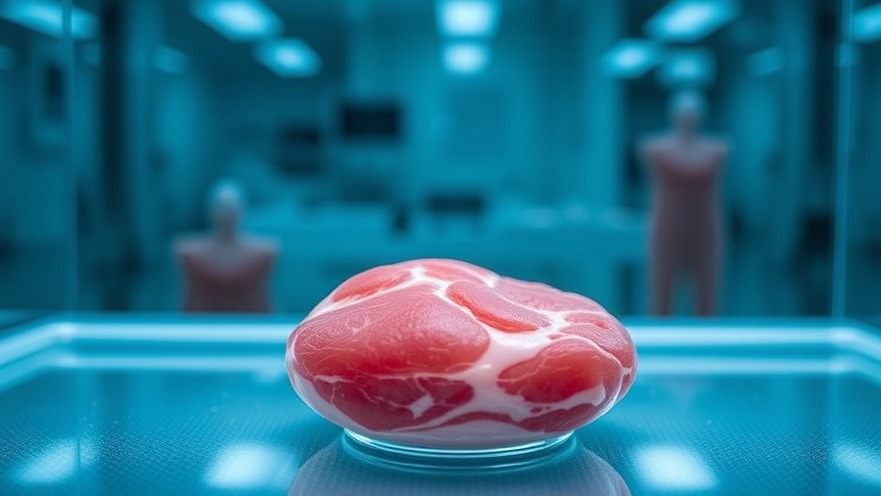
New Law Shakes Up the Texas Meat Market
AUSTIN, Texas — A newly signed law is making waves in the Lone Star State, as Governor Greg Abbott officially banned lab-grown meat. This legislative move, encapsulated in Senate Bill 261, prohibits not only the production but also the sale and distribution of cell-cultured protein products, set to go into effect on September 1, 2025. Interestingly, the law comes with an expiration date—on September 1, 2027, it will automatically end unless further legislative action is taken.
Public Sentiment: A Mixed Bag
Despite two-thirds of Americans expressing a willingness to try lab-grown meat, lawmakers in Texas responded to local concerns rather than consumer interest trends. The Texas & Southwestern Cattle Raisers Association lauded the ban, arguing that it shields Texas consumers from being part of an unresolved scientific experiment. This perspective highlights the underlying tensions between innovation and tradition in food sourcing.
Understanding Lab-Grown Meat
Lab-grown meat, often referred to as "cultured" or "cell-based" meat, is produced by cultivating animal cells in a lab rather than relying on conventional farming methods. The meat industry is adapting to a growing interest in alternative protein sources, with the first approved sale of lab-grown chicken occurring just this year in California. Advocates argue that lab-grown meat presents an eco-friendly and humane alternative to conventional livestock farming.
Legislative Trends Across the U.S.
Texas is not alone in its stance against lab-grown meat; several other states have implemented similar bans. Legal challenges are already unfolding in these regions, suggesting that the future of lab-grown meat may be fraught with legal battles as consumers and producers alike begin to grapple with the implications of this new frontier in food production. In some instances, court rulings may pivot the debate toward market access and food freedom.
The Health Debate
Interestingly, recent surveys, including a March 2024 Purdue study, indicate that many consumers still prefer traditional meat, associating lab-grown options with being less appetizing and more exotic. This portrays a wider cultural ambivalence about accepting lab-grown alternatives that could redefine our dinner plates.
What This Means for Texas Producers
The new law has significant implications for local ranchers and farmers. With meat consumption trends shifting and lab-grown options becoming more prevalent, the protection of the beef industry becomes paramount in the minds of Texas legislators. This protective legislation aims to bolster traditional farming livelihoods amid rising production costs and consumer interest in alternative proteins.
What Lies Ahead: Predictions for the Industry
Looking ahead, the expiration of the ban raises important questions about the future of lab-grown meat in Texas. Will consumers' preferences shift possibly as more lab-grown options enter the mainstream market? Advocates of cultivated meat argue that education can play a crucial role in shaping public opinion and acceptance.
Call to Action: Engage and Educate
As Texas gears up for this seismic shift in food legislation, consumers are encouraged to engage in discussions about the future of food and farming. Sharing insights and experiences can lead to collaborative dialogues that could influence future policies. Those interested in learning more about lab-grown options, ethical food sourcing, and how Texas agriculture might evolve are invited to participate in upcoming community forums and discussions.
 Add Element
Add Element  Add Row
Add Row 



Write A Comment